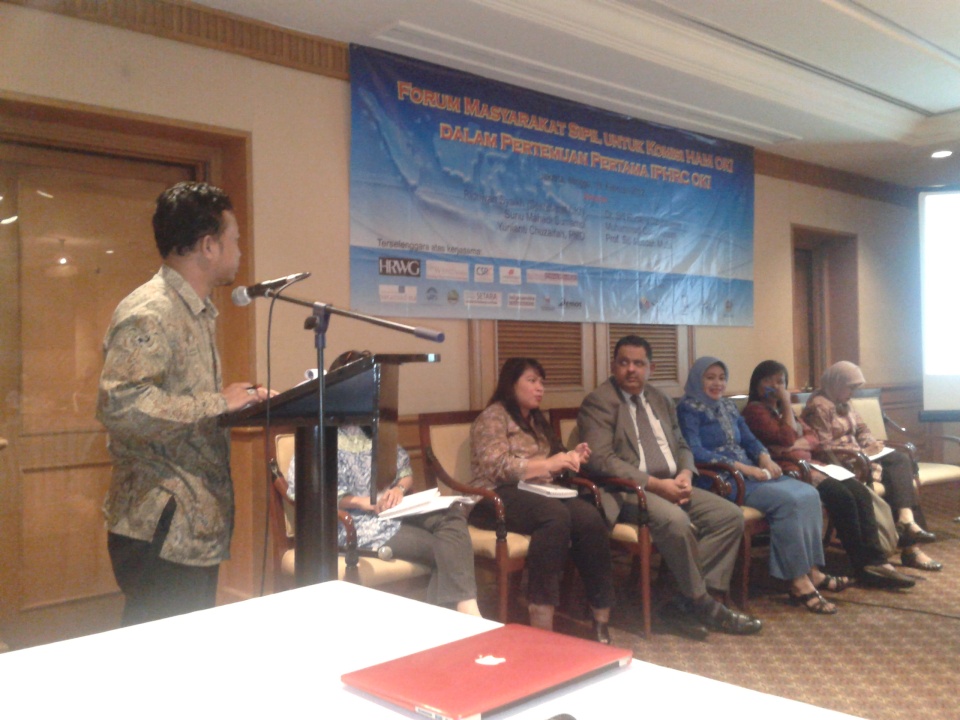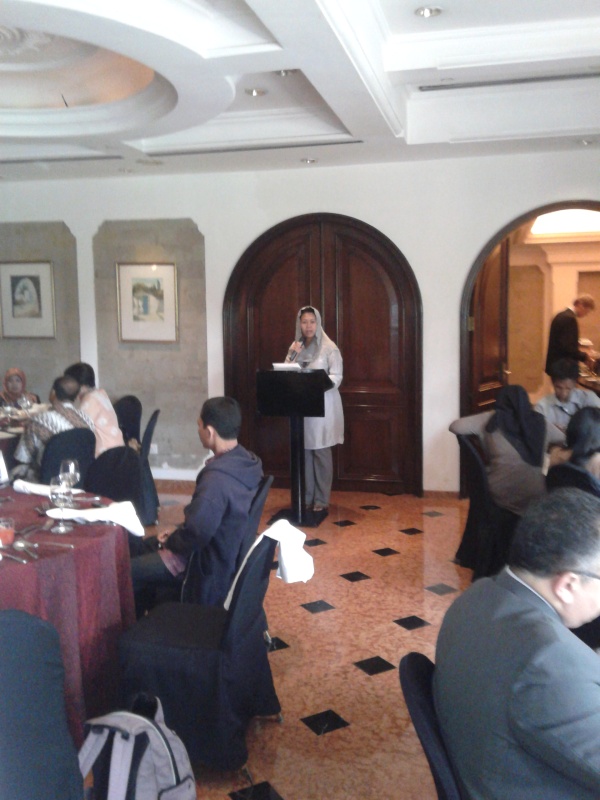Report of Istanbul Process: Implementation of UN HRC Relustion 16/18
Posted by Human Rights in Islamic Countries on January 23, 2013
Report of the United States on the First Meeting of Experts to Promote Implementation of United Nations Human Rights Council Resolution 16/18
December 2011
Executive Summary
At the invitation of Secretary of State Hillary Clinton, representatives of 26 governments and four international organizations met in Washington, D.C. on December 12-14, 2011 to discuss the implementation of United Nations Human Rights Council Resolution (UNHRC) 16/18 on “Combating Intolerance, Negative Stereotyping and Stigmatization of, and Discrimination, Incitement to Violence and Violence Against, Persons Based on Religion or Belief.” In her closing remarks, Secretary Clinton stressed, ―The United States is hosting this conference because religious freedom and freedom of expression are among our highest values. They are enshrined in our Constitution. For people everywhere, faith and religious practice is a central source of our identity. It provides our lives with meaning and context. It is fundamental to who we are.‖
The implementation meeting focused on two elements of the steps set forth in Resolution 16/18: 1) prohibiting discrimination based on religion or belief and 2) training government officials, including on how to implement effective outreach to religious communities. Participants agreed that their task was to keep the discussion focused on implementing the specific steps called for in Resolution 16/18, rather than broadening the dialogue to other possible measures not included in the resolution.
Presenters and participants in the interactive sessions were law enforcement and antidiscrimination experts.
Presenters included experts from invited countries and international organizations, as well as personnel from the United States Departments of Homeland Security and Justice.
Discussions were held under ―Chatham House Rule‖ in order to promote a free and candid exchange of views. Accordingly, while this report reflects accurately the points made and best practices described by all participants, approval was sought before attributing specific remarks to particular participants.
The sessions produced a rich exchange of best practices, which are set forth in the body of this report. Key conclusions for policy makers include the following:
- Participating countries already have in place legal prohibitions of discrimination and violence based on religion or belief. While the nature of these prohibitions vary – some are contained in national constitutions, others in domestic laws, and still others in international instruments that have the same importance in the relevant countries as domestic law – there does not appear to be a fundamental gap in the domestic legal framework of the majority of participant countries.
- Many countries have specialized units in their justice ministries or prosecutor general’s offices which have proven effective in imposing civil, and at times criminal, penalties against those found to have engaged in violence or discrimination on the basis of religion or belief in employment, the provision of public services, or in access to public accommodations such as hotels and restaurants. Others rely on regular pr osecutors to enforce these laws. Civil enforcement of anti-discrimination laws has proven to be the most effective and is most widely used. Strong public outreach is a key factor in all systems. Effective outreach not only ensures that the population knows authorities are willing and able to take on religious discrimination cases, but also teaches citizens how to call such cases to the attention of authorities.
- There is a wide variation in training for government officials. Some countries have specialized programs focused on training officials to consider religious sensitivities when formulating and implementing policies and practices; others have no specific training in this area.
- The disparity in training is reflected in wide variations in the systematization of outreach to religious communities. Some countries have highly structured outreach systems. These systems ensure that communities are aware of potential or actual changes in policy that may affect them, the rationale behind such policies, and the opportunity that communities have to shape such policies through their input. Other countries do not have a systematic way of conducting such outreach, but many have developed creative and effective ad hoc methods for such engagement.
- Effective national security policy and protection of human rights are mutually reinforcing. Law enforcement needs the cooperation of religious and other communities to fight violent extremism. Communities will not cooperate if they perceive that their members are being discriminated against or that their members’ beliefs are not being respected by the authorities. Extremists can use such perceptions to further their own ends. Profiling based on religion or ethnicity not only violates human rights, but also provides a false sense of security and allows actual terrorists to proceed undetected.
Please click HERE to complete report.











Muhammad Hafiz said
Reblogged this on inspirasi untuk toleran and commented:
Laporan Istanbul Process dan capaian yang dihasilkan. Menambah rujukan bagi kita untuk lebih memahami praktik intoleransi dan menyebarkan nilai-nilai yang seiring dengan kemanusiaan. Istanbul Process diselenggarakan oleh OKI dan Pemerintah Amerika Serikat.
WEBCAST – Free speech under attack! « The NeoConservative Christian Right said
[…] Report of Istanbul Process: Implementation of UN HRC Relustion (sic) 16/18 (OIC […]